In The Blue Hour
$15.00
Nirala Publications (New Delhi)
First edition 2021
ISBN: 81-9393-676-0 (978-81-939367-6-4)
96 in stock
Description
Nirala Publications (New Delhi)
First edition 2021
Editor: Yuyutsu RD Sharma
ISBN: 81-9393-676-0 (978-81-939367-6-4)
110 pages, 63 poems
Copyright: @ Carrie Magness Radna
Cover design: Tarun Saxena / Graphical House
Cover photo: Carrie Magness Radna
Author photo: Carrie Magness Radna
8 reviews for In The Blue Hour
Only logged in customers who have purchased this product may leave a review.
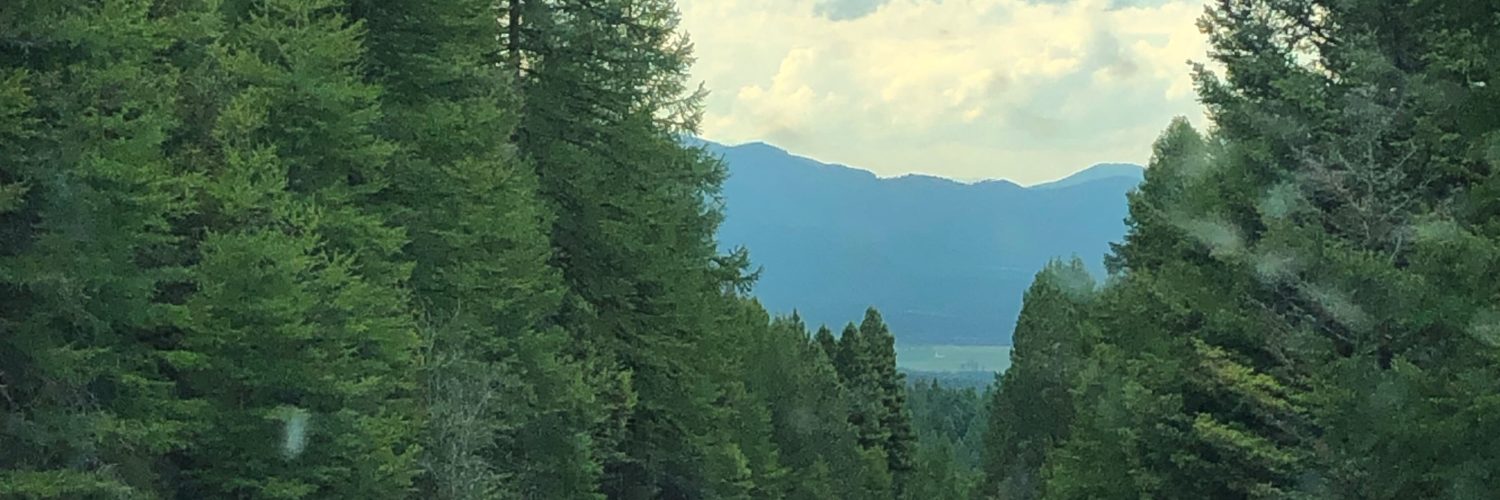
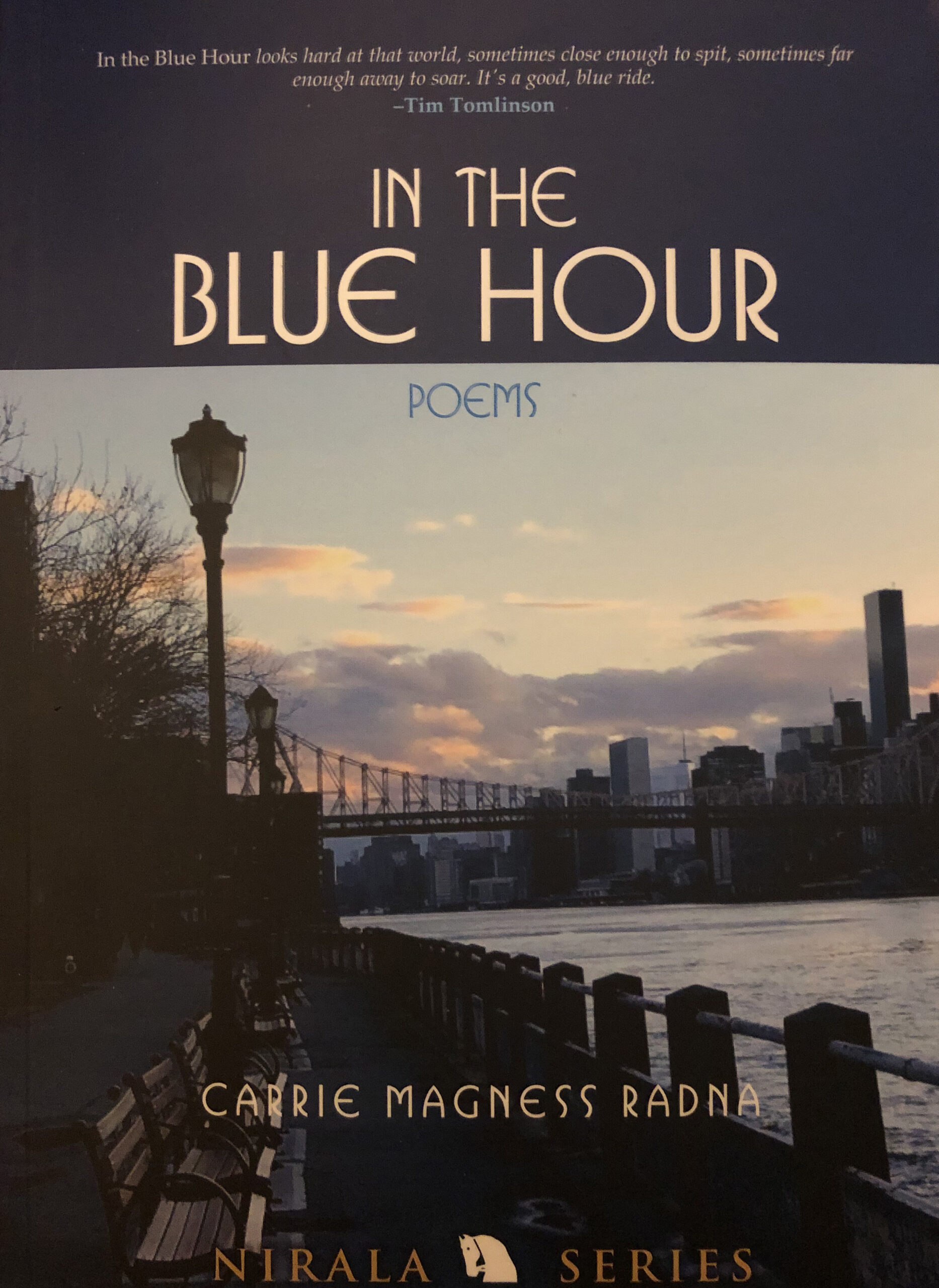
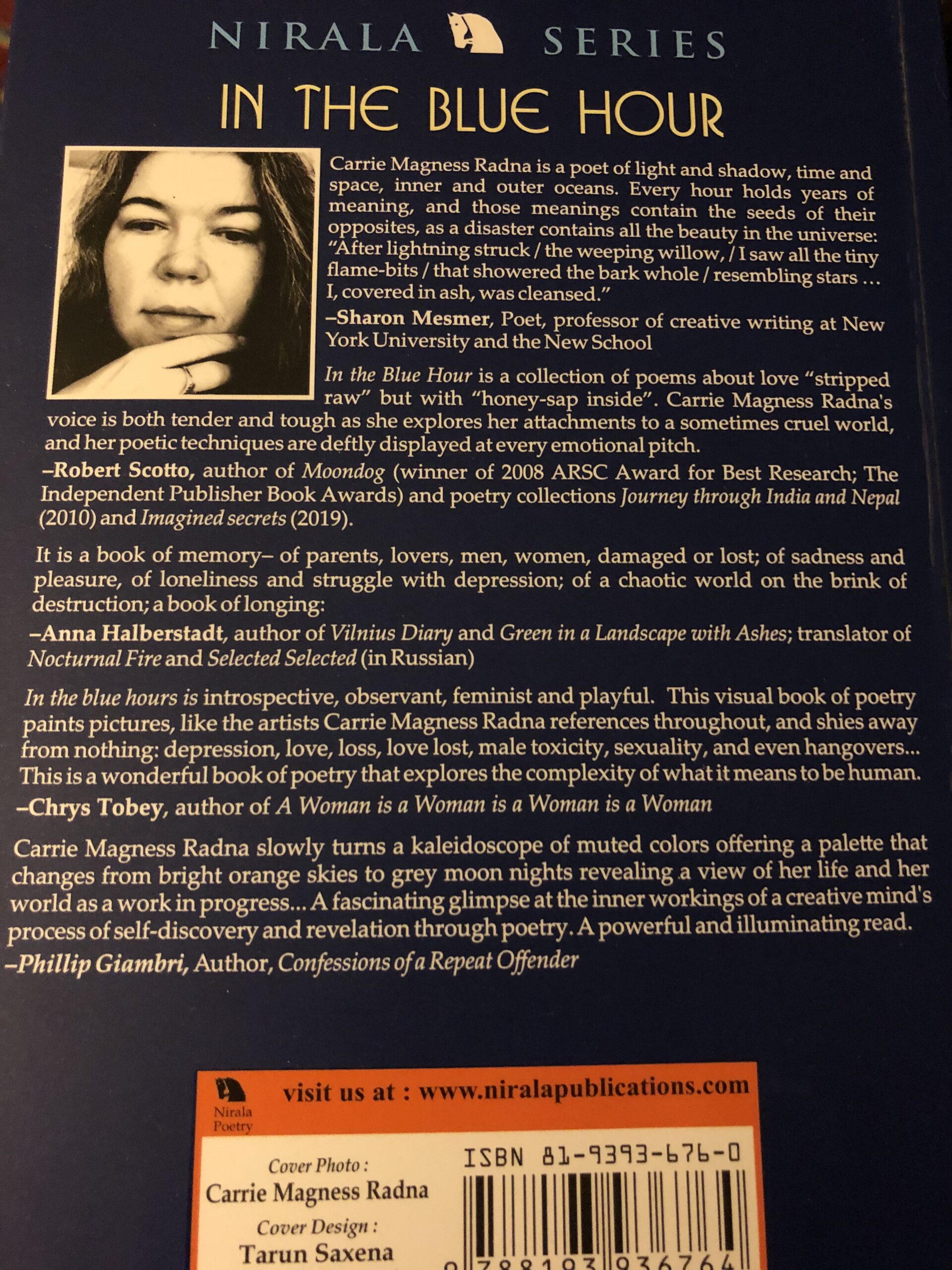
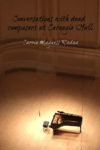
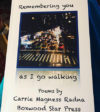
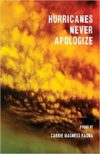
admin –
Beauty, love, and melancholy are Carrie Magness Radna’s themes. Her soft and gentle voice is elegiac. At their best, her poems present memorable images and metaphors that transcend our tragic limits. She might be called Keatsian in that her best poems convince readers that truth and beauty are one “and all [we] know and need to know.” For example, ‘In the sky,’ a love poem spoken to her partner in the morning, imagines the need to restore the beauty of the blown lights of the heavens. As it starts to move to its conclusion, Radna describes glories of the natural world and the flight of herself and her lover:
I woke up in the morning fog, sweet and fragrant berry-green;
… loose invisible, silver threads were hidden in the queue
In the sky vast and unending like love should be, …
Below the sky we could fly in our minds
And repair the cracks no one else could see.
Impressed by the paradox that the imaginatively true is not the truth of reality a reader might think of the lines of Juan Ramon Jiminez translated by James Wright:
… how lovely, how lovely
Truth even if it is not real, how lovely.
— Mike Graves, author of A Prayer for the Less VIOLENT Offenders: The Selected Poems of Mike Graves
admin –
Carrie Magness Radna’s In the Blue Hour is a fine book of poetry, which at times sounds like the blues, especially when it sings of the city dwellers, the lines unrushed and precise:
“Streets are now bluer. The windows, colored either in butter or goldenrod, are bleeding their light as mist from architectural honeycombs;
The lights from street level explode like hot magma—cars speed on, double time . . .”
It is a book of memory– of parents, lovers, men, women, damaged or lost; of sadness and pleasure, of loneliness and struggle with depression; of a chaotic world on the brink of destruction; a book of longing:
“Man, woman, and those singularly defined,
we cross the paths to the future primed
without a road map, without explanation,
we exist, moving from station to station”
–Anna Halberstadt, author of Vilnius Diary and Green in a Landscape with Ashes; translator of Nocturnal Fire and Selected Selected (in Russian)
admin –
Blue infuses the firmament from which many of these poems descend, depend, impend, often clouding, precipitate with actual rain and sometime snow (inevitably melting), inundates “an inner ocean”, others real — lakes and rivers — that “flow like water” below. It varies widely, from the paint on “fantastic” cars (“big & fast as spaceships”) the poet dreamed as a child, to the blues playing “loudly” in her head, coloring mood to “rare indigo,” to true. “I swim in (or I am) an imaginary sea,” she writes (in “Keep breathing”), “crashing against the rocky street.” This is a voice not heard in the wilderness but a cry emanating from a metropolis. Very soft, very clear, it breaks on the ears and enters the mind in a curious amalgam of city racket combined with waves one can see and feel and enter as though the soul were bare feet. There’s an emphatic cadence to these poems, one that begins as it ends, suspended on the page, sometimes where it lands, sometimes reaching outwards. Poised alternately between the ascension of art and immersion in quotidian waters, between refinement and candid observation, forthright, associative, and free, with interpolated trills of operatic tremolo, covert confessional notes caught between chronicle and reflection, In the blue hour archives recollection’s collage.
—Jack Cooper, editor/co-publisher, Poets Wear Prada, and creator of These Are Aphorithms https://aphorithms.blogspot.com
admin –
In the Blue Hour is a collection of poems about love “stripped raw” but with “honey-sap inside”. Carrie Magness Radna’s voice is both tender and tough as she explores her attachments to a sometimes cruel world, and her poetic techniques are deftly displayed at every emotional pitch. I recommend especially “Purple Things” and “Lily” for their exploration of melancholy, “Music Is an Anodyne” and “Melted Rain” for their trenchant and wistful evocations of passing time, “Dilated at Dark” and “Sarabande” for their depiction of the touch that separates or unites — but all of the verses, whether on music, place (local and world-wide), memory or love, are vibrant and alive.
—Robert Scotto, author of Moondog (winner of 2008 ARSC Award for Best Research, The Independent Publisher Book Awards 2008 Bronze Medal for Biography, an entry in the 2nd edition of The Grove Dictionary of American Music and is the basis of an upcoming 2020 documentary), and poetry collections Journey through India and Nepal (2010) and Imagined secrets (2019).
admin –
In this collection of poems, Carrie Magness Radna slowly turns a kaleidoscope of muted colors offering a palette that changes from bright orange skies to grey moon nights revealing a view of her life and her world as a work in progress. Her stories span the full range of human tragedy and foibles but the heart of the book lies in her personal story. The colors of her story are varying shades of blue that capture a lingering melancholia as she examines her life choices and their consequences. She paints a penetrating portrait of a life in question and the pursuit of honest answers. A fascinating glimpse at the inner workings of a creative mind’s process of self-discovery and revelation through poetry. A powerful and illuminating read.
– Phillip Giambri, author of Confessions of a Repeat Offender and The Amorous Adventures of Blondie and Boho
admin –
If I were to assign a color to the spectrum of Carrie Magness Radna’s in the blue hour, it would not only be blue, but purple, to signify the poet’s passion, the royal color that she opines has many layers, like fresh blood oozing from dark roses and violets. Ms. Radna gives nature and human nature such a lyrical, musical, and radiant twist, posing melodious and imaginative philosophical questions (can we repair the sky?) from poem to poem that etch indelibly like delicate pieces of art. In this gem of a collection, both melancholy and beauty coincide with the blooming of flowers and the endless sky, and the reader willingly follows as Radna takes us on her real and metaphorical travels. With a child’s exuberance and an adult’s acuity, she turns family secrets, dark clouds, and muddled hearts into pearls of wisdom and a rebirth of joy (with a few well-aimed digs at Donald Trump, to boot). These poems will fill you with hope and song, and even within the blueness, they will comfort you.
—Cindy Hochman, editor-in-chief of First Literary Review-East
admin –
In the blue hours is introspective, observant, feminist and playful. This visual book of poetry paints pictures, like the artists Carrie Magness Radna references throughout, and shies away from nothing: depression, love, loss, love lost, male toxicity, sexuality, and even hangovers. These poems are playful and have sass; one poem imagines sex with Peter Gabriel and in another, she writes, “I don’t date monsters.” And, in another she skillfully writes, “Fold me like a burrito in a canoe.” Many of these poems explore something so important, something I wish I read more poems about – depression. But even when these poems are their bluest, they still have hope. They still have humor. They still surprise. This is a wonderful book of poetry that explores the complexity of what it means to be human.
—Chrys Tobey, author of A Woman is a Woman is a Woman is a Woman
admin –
Carrie Magness Radna is a poet of light and shadow, time and space, inner and outer oceans. Every hour holds years of meaning, and those meanings contain the seeds of their opposites, as a disaster contains all the beauty in the universe: “After lightning struck / the weeping willow, / I saw all the tiny flame-bits / that showered the bark whole / resembling stars . . . I, covered in ash, was cleansed.” She invites us to walk a path that turns and shifts with the progress of sunlight through trees; sometimes we get turned around, hypnotized by the changing light, but always we are led home by the stars that have grown inside our skin. Always, we know how lucky we are to be alive, to be light: “Floating on a makeshift raft, / but not alone, not dying yet.”
—Sharon Mesmer, Poet, professor of creative writing at New York University and the New School